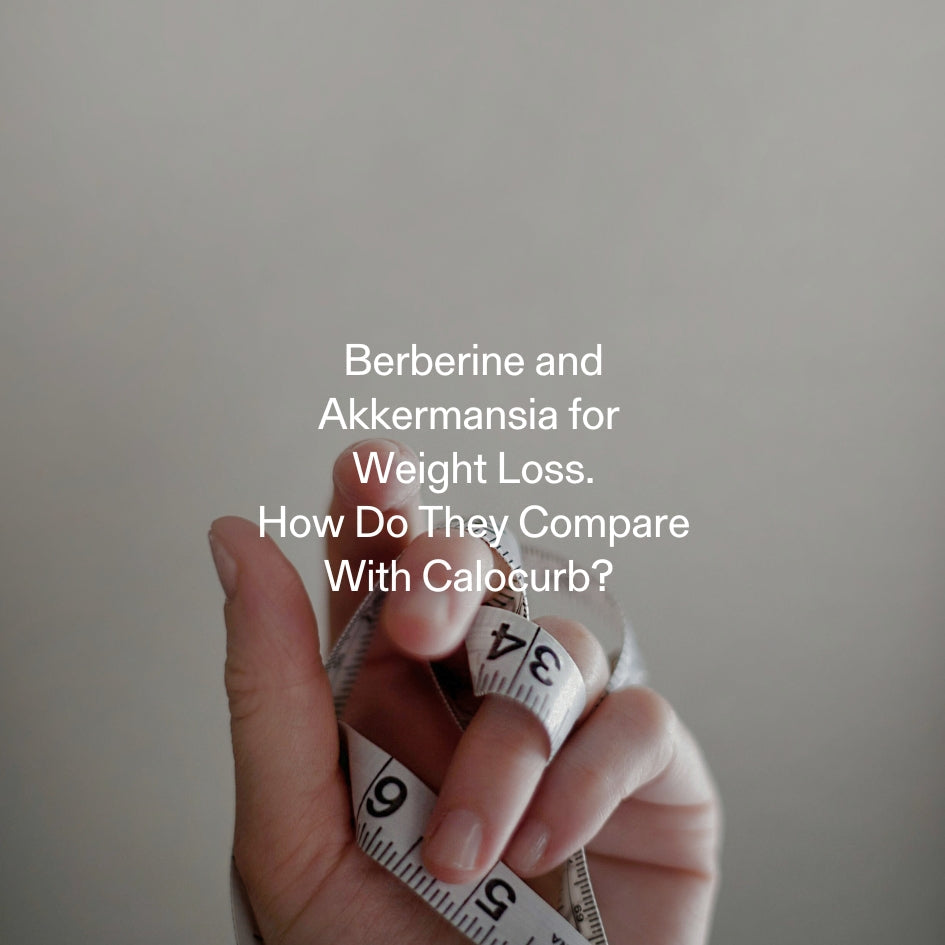Injectable treatments to aid weight loss have been in the limelight for a few years now, thanks to the results they deliver, their massive adoption by one in eight Americans (and one in five whose doctors have told them they’re overweight or obese in the previous five years)1, and the focus on celebrity use of these drugs. Nikki Glaser even mentioned Ozempic as she opened the Golden Globes ceremony last week (“Good evening, and welcome to the 82nd Golden Globes—Ozempic’s biggest night”) and Zepbound was a sponsor of the show. These drugs work by mimicking glycogen-like peptide-1 (GLP-1), the hormone that causes us to feel full and slows down stomach emptying, so that we stop eating. These mimics activate the GLP-1 receptors in our bodies (hence they’re properly called GLP-1 receptor agonists, GLP-1 RAs). But there have been many forerunners of these GLP-1 RAs, from orlistat (Xenical) that blocks fat absorption (and was associated with unfortunate ‘oily accidents’) to the appetite suppressant combination phentermine-fenfluramine (which was withdrawn because of heart valve disease caused by fenfluramine).
Alongside these prescription medications, supplements have been promoted for weight loss for decades. Indeed, plant-based remedies to suppress appetite have been used for hundreds of years: guggul has long been used for weight loss in Ayurvedic medicine and bitter vetch/heath pea was reportedly used by King Charles II’s mistresses.2,3 In fact, the use of these bitter plants prompted the research that led to the development of Calocurb.
How Calocurb Works
Calocurb contains Amarasate©, a bitter extract from the flower of a specific type of hops plant grown in New Zealand. Calocurb capsules are designed to open in the upper small intestine beyond the stomach, where they stimulate bitter taste receptors on specialized cells in the gut lining, causing them to release GLP-1. Unlike the injectable treatments, which are mimics of our natural GLP-1, Calocurb increases the body’s own production of GLP-1. In one of its first clinical studies, when taken an hour before meals, Calocurb increased the production of natural GLP-1 by six times and led to an almost 20% reduction in subsequent food intake.4 Research has shown that to get a noticeable reduction in food intake, you need to increase your GLP-1 levels by at least 4 times, which explains why Calocurb is so effective.4 Calocurb also reduced overall hunger during 24-hour water fasts by 25% in men and by 30% in women.5,6 Side effects are rare with Calocurb, although up to 5% of people may get diarrhea when they start it.
Other Weight Loss Supplements
With the recent focus on the GLP-1 RAs, attention has turned to other supplements that help with weight loss. There are many types of supplements for weight loss, including caffeine-containing products like guarana to boost metabolism, bulking agents like guar gum to slow down digestion and make you feel fuller, and plant extracts that are said to block the absorption of fats or sugars.7 For a great summary of weight loss supplements, visit this NIH site. But two supplements that are increasingly being marketed for weight loss are missing from the NIH list, berberine and Akkermansia. So what are these supplements, do they work and how do they compare with Calocurb?
Berberine
Berberine is a bitter yellow compound that comes from Berberis plants, such as goldenseal, Oregon grape, tree turmeric and barberry. It activates AMPK, an enzyme called the ‘metabolic master switch’ that monitors cellular energy levels and regulates lipid and glucose metabolism. It’s reported to have beneficial effects on blood sugar, lipid levels and blood pressure, kills drug-resistant candida (in laboratory studies) and may be helpful in managing symptoms of polycystic ovary syndrome and small intestine bacterial overgrowth. Its role in aiding weight loss is thought to be due to its beneficial effects on glucose and lipid metabolic pathways.
However, while studies in fat rats have demonstrated weight loss effects, berberine has shown mixed results in humans. Four meta-analyses (in which data from several different studies of a similar design are statistically examined for consistency of results) have been undertaken since 2020 on the effects of berberine (or barberry) on multiple health measures.8-11 Each meta-analysis included as few as 10 and as many as 24 individual studies (Table 1). While one analysis showed no significant changes in weight, Body Mass Index (BMI) or waist circumference (WC),8 two others did.9,10 In the fourth analysis, BMI and WC were significantly reduced, but weight was not.11 In addition, one analysis showed that berberine would need to be taken for 50 weeks (!) to get the most benefit in reducing waist circumference.10 Even in the studies that showed statistically significant reductions, the actual amounts were rather small: the maximum weight loss seen was under 5 lbs (2.2 kg).9
Table 1: Meta-analyses of effect of berberine for weight loss
| Lead Author | Number of Studies Analyzed | Weight loss | Decrease in BMI | Decrease in WC | ||
|---|---|---|---|---|---|---|
| lbs | kgs | kg/m² | in | cm | ||
| Amini8 | 12 | 0.2* | 0.1* | 0.16* | 0.2* | 0.6* |
| Asbaghi9 | 12 | 4.6 | 2.1 | 0.47 | 0.4 | 1.1 |
| Zamani10 | 21, 24, 11† | 1.9 | 0.8 | 0.25 | 0.7 | 1.8 |
| Xiong11 | 10 | 0.2* | 0.1* | 0.29 | 1.0 | 2.8 |
*Not statistically significant. No asterisk implies changes were statistically significant.
†For weight loss, BMI and waist circumference, respectively.
Berberine can produce abdominal side effects such as nausea, abdominal pain, bloating, constipation, or diarrhea.
Akkermansia
Akkermansia muciniphila is generally regarded as a beneficial bacterium in our intestinal microbiome. Commonly referred to just as Akkermansia, it’s said to be helpful in reducing body mass and blood sugar levels, helping to strengthen our intestinal lining and causing thermogenesis (i.e., it raises body temperature, burning more calories).12 Its weight loss effects are thought to be related to certain biomolecules it secretes that stimulate GLP-1 production from cells within the gut. Animal studies in fat mice demonstrated that Akkermansia or its biomolecules reduced body weight, fat mass and glucose intolerance.12
There are few studies in humans of the effects of Akkermansia on weight. In a preliminary study of 32 overweight or obese adults, 3 months’ supplementation with pasteurized Akkermansia produced small reductions in body weight (5.0 lbs / 2.3 kg), fat mass (3.0 lbs / 1.4 kg), waist circumference (0.6 in / 1.6 cm) and hip circumference (1 in / 2.6 cm), none of which were statistically significant compared to the control group who received placebos.13 Although the enzyme that breaks down GLP-1 in our bodies was reduced by supplementation with pasteurized Akkermansia, blood GLP-1 levels were not changed.13
There are some cautions to be aware of in supplementing with Akkermansia. Because it breaks down mucin (an important component of intestinal mucus) it may be harmful to those with irritable bowel syndrome (IBS), polycystic ovary syndrome or endometriosis (both of which make women more susceptible to IBS).14 In addition, while high amounts of Akkermansia in the gut microbiome are associated with a reduced likelihood of obesity,15 it’s also abundant in those with Parkinson’s disease or multiple sclerosis.14 Therefore, anyone with these conditions should discuss the use of Akkermansia with their doctor before using this supplement.
Conclusion
Calocurb appears to be the only dietary supplement that has demonstrated a beneficial increase in GLP-1 levels to levels beyond those associated with reductions in food intake. Anecdotal evidence and small observational cohort studies from doctors specializing in weight management have demonstrated its ability to help people lose body mass.
Human studies on the use of berberine and Akkermansia have produced mixed results with only small (or no) statistically significant reductions in various weight measurements. Calocurb is currently the subject of a 6-month trial in overweight and obese people; the results of this study are eagerly awaited.
- Written for Calocurb by Dr. Tracey Lambert
References
- Montero A, Sparks G, Presiado M, Hamel L. KFF Health Tracking Poll May 2024: The Public’s Use and Views of GLP-1 Drugs. KFF. Published May 10, 2024. Accessed January 11, 2025. https://www.kff.org/report-section/kff-health-tracking-poll-may-2024-the-publics-use-and-views-of-glp-1-drugs-findings/#endnote_link_621012-1
- Sarup P, Bala S, Kamboj S. Pharmacology and phytochemistry of oleo-gum resin of Commiphora wightii (Guggulu). Scientifica (Cairo). 2015;2015:138039. doi:10.1155/2015/138039
- Mair G, Henry S. How the herb Charles II used to keep royal mistresses in shape could help fight today’s obesity epidemic. Mail Online. Published March 19, 2008. Accessed September 23, 2024. https://www.dailymail.co.uk/health/article-527413/How-herb-Charles-II-used-royal-mistressesshape-help-fight-todays-obesity-epidemic.html
- Walker EG, Lo KR, Pahl MC, et al. An extract of hops (Humulus lupulus L.) modulates gut peptide hormone secretion and reduces energy intake in healthy-weight men: a randomized, crossover clinical trial. Am J Clin Nutr. 2022;115(3):925-940. doi:10.1093/ajcn/nqab418
- Walker E, Lo K, Tham S, et al. New Zealand bitter hops extract reduces hunger during a 24 h water only fast. Nutrients. 2019;11(11):2754. doi:10.3390/nu11112754
- Walker E, Lo K, Gopal P. Gastrointestinal delivery of bitter hop extract reduces appetite and food cravings in healthy adult women undergoing acute fasting. Obes Pillars. 2024;11:100117. Published 2024 Jun 20. doi:10.1016/j.obpill.2024.100117
- Office of Dietary Supplements. Dietary Supplements for Weight Loss. Nih.gov. Updated March 22, 2021. Accessed January 11, 2025. https://ods.od.nih.gov/factsheets/WeightLoss-Consumer/
- Amini MR, Sheikhhossein F, Naghshi S, et al. Effects of berberine and barberry on anthropometric measures: A systematic review and meta-analysis of randomized controlled trials. Complement Ther Med. 2020;49:102337. doi:10.1016/j.ctim.2020.102337
- Asbaghi O, Ghanbari N, Shekari M, et al. The effect of berberine supplementation on obesity parameters, inflammation and liver function enzymes: A systematic review and meta-analysis of randomized controlled trials. Clin Nutr ESPEN. 2020;38:43-49. doi:10.1016/j.clnesp.2020.04.010
- Zamani M, Zarei M, Nikbaf-Shandiz M, Hosseini S, Shiraseb F, Asbaghi O. The effects of berberine supplementation on cardiovascular risk factors in adults: A systematic review and dose-response meta-analysis. Front Nutr. 2022;9:1013055. Published 2022 Oct 14. doi:10.3389/fnut.2022.1013055
- Xiong P, Niu L, Talaei S, et al. The effect of berberine supplementation on obesity indices: A dose-response meta-analysis and systematic review of randomized controlled trials. Complement Ther Clin Pract. 2020;39:101113. doi:10.1016/j.ctcp.2020.101113
- Cani PD, Knauf C. A newly identified protein from Akkermansia muciniphila stimulates GLP-1 secretion. Cell Metab. 2021;33(6):1073-1075. doi:10.1016/j.cmet.2021.05.004
- Depommier C, Everard A, Druart C, et al. Supplementation with Akkermansia muciniphila in overweight and obese human volunteers: a proof-of-concept exploratory study. Nat Med. 2019;25(7):1096-1103. doi:10.1038/s41591-019-0495-2
- Chiantera V, Laganà AS, Basciani S, Nordio M, Bizzarri M. A Critical Perspective on the Supplementation of Akkermansia muciniphila: Benefits and Harms. Life (Basel). 2023;13(6):1247. Published 2023 May 24. doi:10.3390/life13061247
- Zhou Q, Zhang Y, Wang X, et al. Gut bacteria Akkermansia is associated with reduced risk of obesity: evidence from the American Gut Project. Nut Metab (Lond). 2020;17:90. Published 2020 Oct 22. doi:10.1186/s12986-020-00516-1






